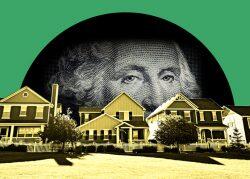Homeowners in the Dallas-Fort Worth metroplex had one of the lowest rates of negative equity, or ‘underwater mortgages,’ in the nation this year, in which they owed more than the value of their homes.
In the Dallas-Plano-Irving metropolitan area, there were more than 860,000 homeowners with mortgages in the first quarter, and more than 10,000 owed more than their homes are currently worth, working out to a 1.21 percent negative equity share.
Contributing factors include the rapid increase in home values in the Dallas area and Texas overall.
Read more


Comparatively, the share of homeowners with negative equity nationwide decreased year over year by 23 percent in the first quarter of 2022, showing just how much appreciation has been provided by rising home values in DFW.
“The robust growth is, in large part, contributable to significant in-migration in the region over the last year,” said Selma Hepp, deputy chief economist at CoreLogic. “Among the major metropolitan areas, Dallas has seen the largest gain in population, up almost 100,000 people between summer of 2020 and summer of 2021.”
As more and more people move in, the home values are likely to only continue going up. Zillow reports that the typical home value in the DFW market now is over $370,000, up 29.3 percent from last year and up 7 percent from just the first quarter of 2022.
Other studies show DFW home values saw an uptick of almost 40 percent from last year, which would make it the largest spike in home sales in the nation.
“Home price growth is likely to slow some but still remain relatively strong, which will help continue to reduce negative equity,” said Hepp.
“Gains in home equity are positive for homebuyers who see their overall wealth increase as a result of higher home equity. In DFW, the average homeowner with a mortgage saw almost $72,000 increase in home equity over the last year,” she said.
Hepp said that this extra equity will enable homeowners to take some cash out for other expenses, which may help in the wake of other price spikes caused by the inflation crisis.
“While equity itself shouldn’t have an impact on refis – mortgage rates do – having more equity enables homeowners to take some cash out for other expenses that they may have,’’ she said. “We do project that cash-out refis will be a larger share of the refi volume this year.”
